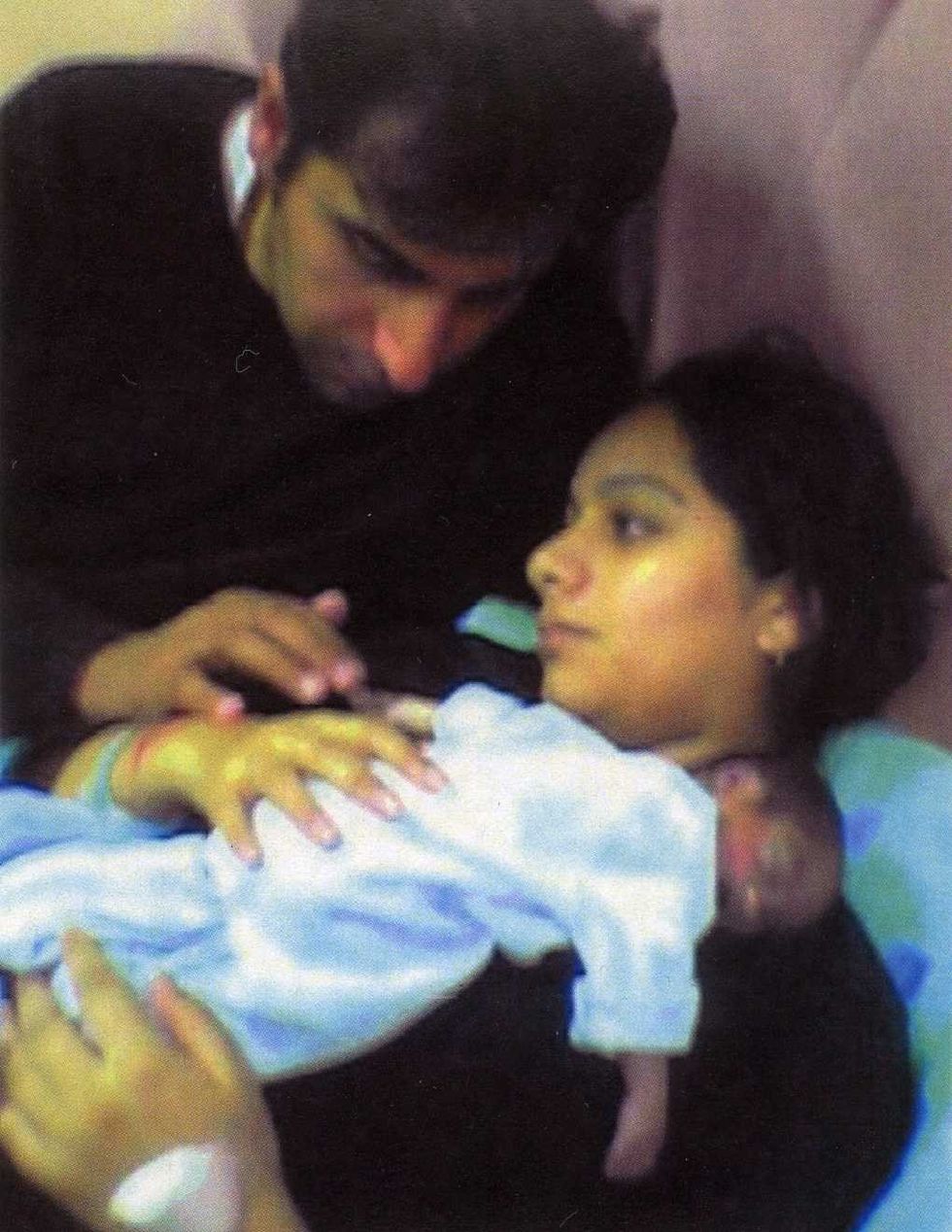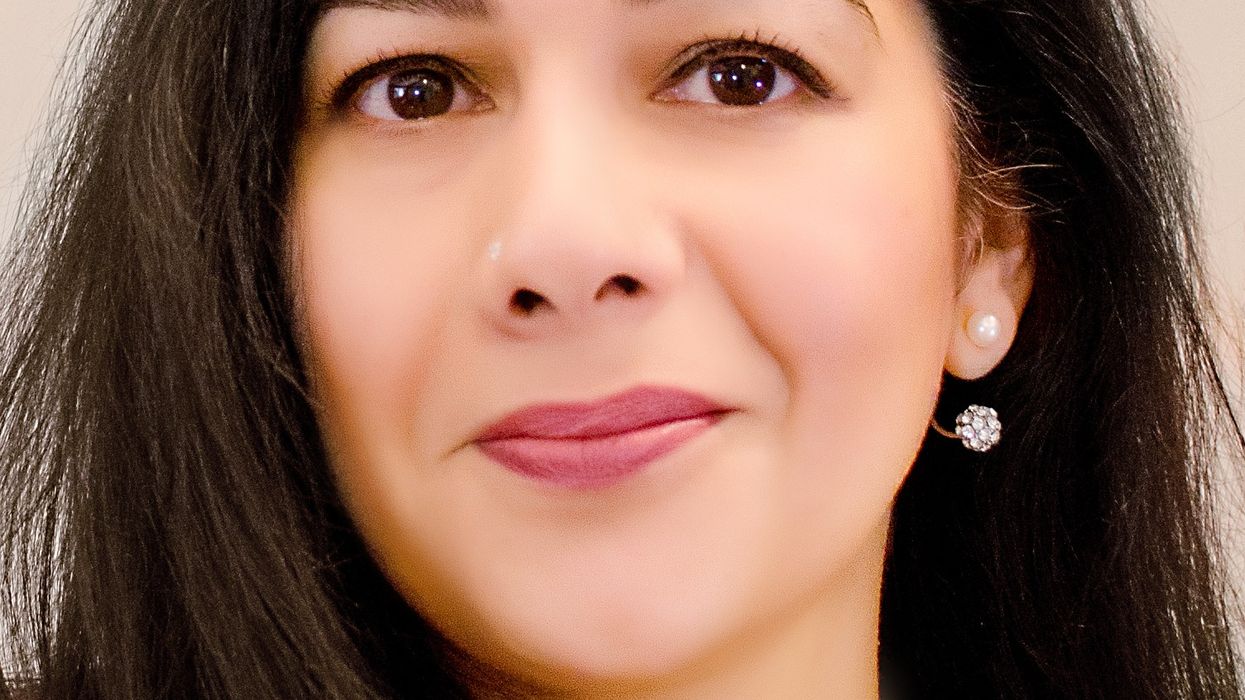How Madhuri Bedi is providing support to affected families
This month marks 20 years of Baby Loss Awareness Week in the UK.
From October 9-15, everyone connected to the baby loss community comes together to commemorate much-loved and missed babies while raising awareness about the support that is available all-year round.
London-based Madhuri Bedi lost her baby 18 years ago and went on an emotional journey, which led her to eventually work for Sands, a leading organisation that offers support to those who have suffered or been impacted by baby loss. Bedi works with Sands to show bereaved families from the south Asian community that they are not alone in their grief and that support is available.
Bedi told Eastern Eye her story of baby loss and finding hope through pain.
When your baby dies, you find yourself on a new path you never expected. The saying ‘love is blind’ is so true. As soon as you conceive, you fall in love with the child growing within you. You have no idea if it is a girl or a boy. You don’t know how it will look or grow up to be. All you know is the tenderness and love you feel for the life nurturing within you. This is how we, too, felt when we conceived.
And then suddenly, without any warning, everything changed. Our beautiful baby boy Vishaal was born prematurely at 29 weeks and four days. We did not get the opportunity to see our son or hold him as he was rushed straight to the special care baby unit.
Doctors arrived, and in the blink of an eye, the world of jubilation we had dreamt of turned into a heart-breaking nightmare. We were told that our son had a Group B Strep infection that had impacted his brain functions. They explained that the kindest thing we could do for our son was to turn off his life support machine. Agreeing to do this was the most heart-wrenching decision we have ever made; our son never came home, and we were robbed of
every milestone that should have been.
Our baby boy was placed into our arms for the first time, one day into his tender life, so we could do what no parent should ever have to. In those moments before we had to turn off his life support machine, we showered upon him the love and blessings of a lifetime; we kissed him and wondered so desperately if he knew we were with him and if he could feel our deep and desperate love.
We sang to him and told him about his family, home, and everyone waiting to spoil and love him as he deserved to be loved. We held his hand in the way a parent would on the first day of school and looked at him with such pride, just as we would have on his graduation, wedding and when he had a child of his own.
And as we turned off his life support, we desperately tried to convey to him how sorry we were that we could not protect him as a child deserves to be protected. Our son’s heartbeat was slipping away, and he was taking our heartbeats with him. I screamed, and then he was gone.
The aching love, longing, and nurturing we felt for our son were rife within us, but sadly, we could not give any of this to the one person we craved. It saddened me to see how quickly we were expected to move on and pretend it never happened.
While we received much support from family and friends, sadly, we also saw first-hand the stigma and taboo attached to baby loss within our community.
There is an expectation to forget and carry on as normal, be it a miscarriage, neonatal death, stillbirth or infant death.
We were constantly being told to move on; it was God’s will; it’s not meant to be. I wanted to scream, but instead, I stayed silent and learnt to hide my emotions.
In a moment of darkness and despair, I called the Sands helpline. I couldn’t speak, and they understood that and let me cry my hidden tears. They didn’t say it would get better with time or that it happens.

Instead, they comforted me and gave me a comforting and safe place to shed my tears and openly talk about Vishaal and how lost and alone we were feeling despite having so many people around us.
As time went on, my husband and I started attending Sands Support Groups, which helped, but there were times we also felt isolated because there were no other south Asian families there to whom we could speak and know they would understand the many norms of our culture and our communities.
Sands acknowledged this, and 18 years on, I feel humbled to work for Sands as a Bereavement Support Services Officer, ensuring south Asian communities are aware of the many channels of support Sands offers.
Baby Loss Awareness Week concludes with the Wave of Light on October 15. This is a special time when people across the world light a candle at 7 pm local time and leave it burning to remember all babies who have died too soon.
I will light a candle and remember Vishaal and all the precious babies who have gone too soon. Through the lighting of these candles, we remember our babies, and we keep them alive in our hearts, and together, we heal a little.
Sands is here to support anyone affected by the death of a baby. Sands’ free helpline is available on 0808 164 3332, 10am to 3pm, Monday to Friday; and 6pm to 9 pm, Tuesday and Thursday evenings.












